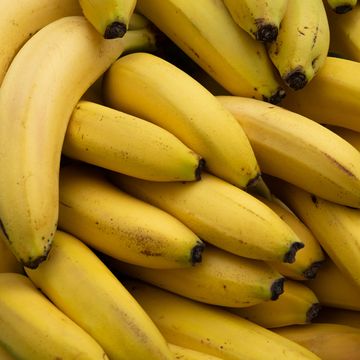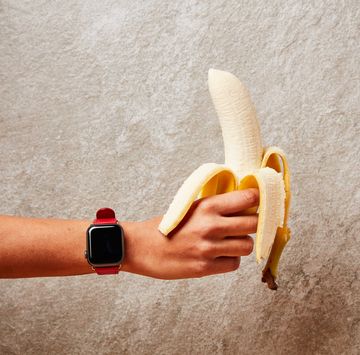In a perfect world, we’d all remember to drink the right amount of water every single day. But, the reality is that most people don’t include 'drink water' on their to-do lists. When you fail to drink enough to replenish the fluids lost through urination, sweating and even breathing, you begin to enter a state of dehydration.
And being dehydrated doesn’t just make you feel thirsty – it can also have a major impact on how your entire body functions.
How much water should you drink each day?
You’ve probably heard the rule of thumb that you should drink eight glasses of water a day, but it turns out that the amount of water each person should drink varies.
Children and older adults tend to need more water to stay hydrated, says Seth Smith, M.D., clinical associate professor in the University of Florida Department of Orthopaedics and Rehabilitation. People who take certain medications, have a history of cardiovascular disease, or have recently had a viral illness need to drink more, too. If you’re in a hot, humid climate or you’re exercising (and sweating) you’re also more susceptible to dehydration.
A person who weighs about 150 pounds has about five liters of total body water, Smith says. It’s not unusual for a highly active person to lose up to two of those liters via sweat during a workout. To prevent dehydration, the fluids lost need to be replenished.
The best way to do this is to listen to your body and drink water when you feel thirsty. You should also drink water before, during, and after any physical activity. In addition to getting enough water, maintaining a diet full of hydrating foods like fruits and vegetables is another way to replenish lost fluids.
Functions of water in the body
Signs of dehydration
When you don’t have enough water in your body, dehydration will follow, and yes, thirst is one symptom. 'Usually when thirst occurs, the person is about two percent dehydrated,' says Smith. That means you don’t have to sprint to the water fountain immediately, but you should grab a glass of water soon. If you don’t listen to your body’s signals, you’ll slowly become more dehydrated, especially if you’re engaging in physical activity.
But thirst isn’t the only dehydration symptom to know. Watch out for these other signs:
1. Dry mouth
Dry mouth is another way your body tells you it needs more total body water. Your body can’t make sufficient saliva if it doesn’t have enough fluids. Watch out for bad breath, too, which can be caused by dry mouth. Grab a bottle of water before a piece of gum, because the culprit is often mild dehydration.
2. Dark or tea-coloured urine
The more total body water you have, the clearer your urine will be. If it’s a darker color, that means it’s more concentrated, and it’s a sign you should drink more water.
3. Decrease in urination
Water helps your kidneys remove waste from your blood in the form of urine. If your kidneys aren’t getting enough water to carry waste from your body, you simply won’t urinate as frequently. Instead, you’ll keep that waste in your body, and if you’re chronically dehydrated, it can cause more serious problems over time. When urine is too concentrated, waste minerals stick together to create kidney stones.
Remember: It’s not just your renal system that depends on water to function properly – just about every major system in your body does, including your heart, brain, and lungs, Smith says.
4. Dry skin
Your skin is your body’s largest organ, and just like any other organ, it needs the right amount of blood supply to function. If you notice that your skin is drier than usual, don’t just reach for a moisturiser. It could be a sign that you don’t have enough total body water, and you should add more of it to your diet.
5. Low blood pressure
More than half of the blood in the body is plasma, the liquid part of the blood. Plasma is made up of water, protein, and salt. Without enough H2O in your plasma, your blood will become more concentrated, and it will be a lot more difficult for it to flow through the body to the organs that need it.
6. Muscle cramping
When you’re dehydrated, your blood becomes more concentrated, and therefore your blood volume (the total volume of blood in your body) drops. So when you don’t hydrate properly, your body goes through a thought process: what parts of the body need blood the most? 'The heart is going to win out over the muscles,' Smith says, and inadequate blood flow to the muscles causes those muscle cramps.
7. Constipation
Like the renal system, the digestive system needs plenty of water to run smoothly. Water allows your food to move through your intestines, and it also keeps your intestines healthy and efficient. Constipation could be a sign that there isn’t enough fluid to carry waste through and out of the body.
8. Fatigue
Always tired? Everything from a mid-afternoon slump to overwhelming fatigue could be caused by dehydration. When you don’t have enough water in your body, your blood pressure drops, the blood flow to your brain slows, and your heart rate increases – all of which can make you feel pooped out.
9. Headaches
If your brain isn’t getting enough fluids to function properly, a range of symptoms will follow. Headaches are most common, and dehydration is also a common migraine trigger. Fading in and out of consciousness, feeling lightheaded and dizzy, and fainting are some of the most extreme signs that a person needs to rehydrate immediately.
How much of your body is water?
Exactly what to do if you're dehydrated
The treatment for dehydration – from mild to moderate – depends on replacing the fluids your body has lost. For mild symptoms, drink water and snack on something with sodium, which Smith says helps the body retain fluids. Take small sips of water instead of big gulps, as too much water can overload your stomach and make you nauseous.
If water and salty snacks aren’t enough to help you bounce back, or you’re experiencing more moderate symptoms, you should drink a sports drink with electrolytes. Electrolytes are minerals in the body’s fluids, and if you’ve sweat a lot, you may need to replenish them as well as your total body water.
Smith says it’s time to seek medical attention when someone is having trouble rehydrating on their own. Severe vomiting, mental status changes and fainting are sure signs that it’s time to call for help.















